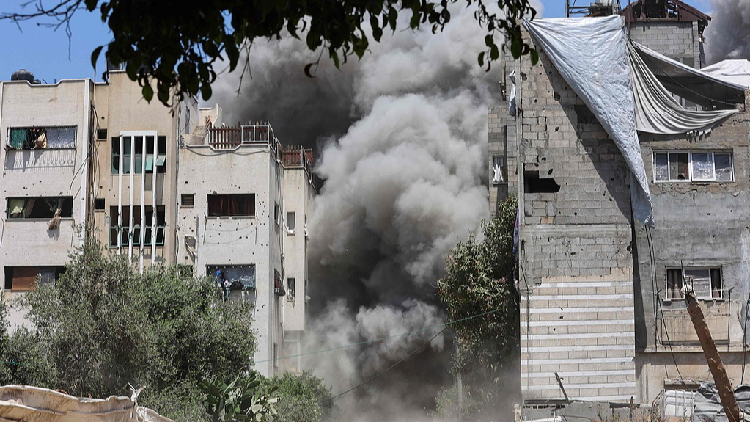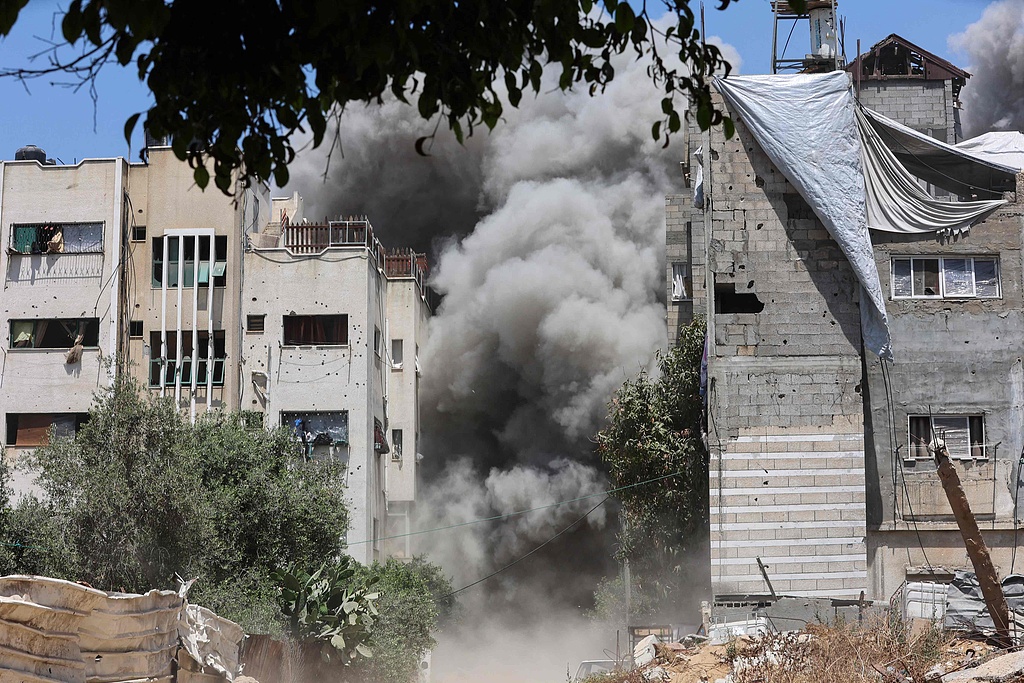Hamas Opposes U.S. Gaza Plan, Witkoff Labels It 'Unacceptable'
Hamas protests U.S. ceasefire proposal, calling for amendments as Washington deems their response "totally unacceptable."


Hamas announced on Saturday that it is seeking amendments to the latest U.S.-brokered ceasefire proposal for Gaza, prompting U.S. special envoy Steve Witkoff to denounce the group's response as "totally unacceptable."
The United States-backed proposal lays out a 60-day pause in hostilities, the release of 28 out of the 58 hostages still believed to be held in Gaza, the exchange of over 1,200 Palestinian prisoners, and a significant escalation in humanitarian assistance to the war-torn enclave. The plan, considered one of the most comprehensive efforts yet to halt the fighting, faces mounting challenges amid ongoing disputes between the parties involved.
According to Gaza health authorities, intense hostilities since October 7, 2023, have resulted in 54,381 deaths and 124,054 injuries within the strip. Since Israel resumed its military operations on March 18, an additional 4,117 people have been reported dead and 12,013 injured, raising alarm about the rapidly deteriorating humanitarian situation.
'Biased'
Hamas is pushing for a phased release of hostages over the course of the 60-day truce, wider and more reliable entry of humanitarian aid throughout Gaza, and written assurances that any temporary truce would transition into a permanent ceasefire. Israel, however, maintains its stance against these conditions, insisting on the disarmament of Hamas, the group's removal from power, and the unconditional release of all hostages.
Prime Minister Benjamin Netanyahu reaffirmed Israel's position, stating that his government has already agreed to the framework put forth by Witkoff but accuses Hamas of prolonging the conflict by rejecting the core elements of the plan. "Israel will continue its action for the return of our hostages and the defeat of Hamas," Netanyahu declared.
Responding to Hamas' demands, Witkoff took to social media to assert, "It is totally unacceptable and only takes us backward. Hamas should accept the framework proposal we put forward as the basis for proximity talks."
Soon after, senior Hamas official Basem Naim pushed back, denying that the group had rejected the proposal outright. He claimed that Israel's version of the proposal diverged significantly from what had been discussed behind closed doors, and accused Witkoff of "complete bias" towards Israel's position.
In a further statement, Hamas reiterated its calls for a permanent ceasefire, a full-scale withdrawal of Israeli forces from Gaza, and a guaranteed, unimpeded delivery of humanitarian aid. The group said it would release 10 living hostages along with the bodies of 18 others in exchange for what it called "an agreed-upon number of Palestinian prisoners."
Amidst the ongoing negotiations, Israel's Kan television reported that the Israeli military is preparing to ramp up operations in northern Gaza in response to what it views as Hamas' refusal to cooperate. On Friday, Israeli Defense Minister Israel Katz issued a stark warning, urging Hamas to accept the deal or "be destroyed."
The Israeli military also confirmed Saturday the death of Mohammed Sinwar, a top Hamas commander and the head of the group's military wing in Gaza, killed earlier this month in an airstrike. Sinwar's death is viewed as a significant blow to Hamas, though officials caution it is unlikely to immediately slow the pace of fighting.
The latest standoff comes after a previous ceasefire, which began on January 19, collapsed on March 18 when Israel relaunched military operations in Gaza. In the lead-up to the renewed offensive, Israel shut border crossings and drastically reduced aid deliveries on March 2. While some humanitarian access has resumed since late May, relief organizations warn that conditions in the enclave remain dire and the need for a lasting peace is more urgent than ever.




